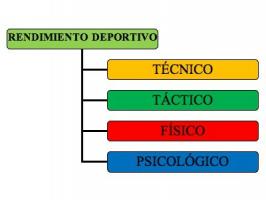Improving Soccer Performance
Football, known as the "king sport", is an amalgamation of skills, tactics and emotions. Each player, regardless of his position, has a crucial role in the team.
However, for a team to reach its full potential, it is essential that each player is at their best, both physically and mentally. Furthermore, in a sport as dynamic and competitive as football, the ability to adapt, learn and improve is essential.
Strategies to improve in football
Great teams are not only based on skill, but also on each player's ability to overcome adversity and come back stronger.
1. Goalie
Decision making is crucial. A study by Miller and Roberts (2004) found that Goalkeepers who participate in training that simulate real game situations improve their ability to anticipate and react to shots and crosses. Additionally, mental resilience is essential for a goalkeeper as a single mistake can be costly. Iker Casillas, after facing criticism, demonstrated his mental strength by returning with stellar performances in crucial matches until his retirement.
- Related article: "What is Sports Psychology? "Learn the secrets of a growing discipline"
2. Defense (Central and Lateral)
Communication and anticipation are essential. Zuber, Zibung and Conzelmann (2015) highlighted the importance of effective communication between defenders to anticipate and neutralize offensive threats. Additionally, the ability to recover from mistakes and maintain composure is vital. Sergio Ramos, after receiving criticism, has demonstrated on multiple occasions his ability to lead the defense and score decisive goals.
3. Midfielder (Defensive/Offensive)
Vision of the game and resistance are key. Valencia Sánchez and Arias Arias (2021) suggest that midfielders who participate in resistance and tactical exercises improves his ability to maintain rhythm and make good decisions throughout the game. An example is Luka Modric, who, despite his adversities at the beginning of his arrival at Real Madrid, has proven to be the engine of the midfield of Real Madrid and the Croatian team.
4. Engagement (Creative and Pivot)
Creativity and ball control are essential. Türksoy, Altıncı and Üster (2015) found that exercises that encourage creativity and ball control They can improve the hooker's ability to create scoring opportunities. Lionel Messi, after facing challenges in his career, has returned with magical performances, demonstrating his genius on the field, winning everything with the Argentina team.
5. Steering wheel
Versatility and adaptability are essential. Mouloud and Elkader (2016) suggest that midfielders who train in different positions and tactical situations develop greater adaptability on the playing field. An example is Kevin De Bruyne, who has overcome injuries and has returned to be a key player in Manchester City and becoming champion of the Champions League.
6. Forward
Accuracy and quick decision making are crucial. Nasiruddin and Fauzee (2020) found that forwards who practice shooting under pressure and in various situations improves his accuracy and ability to make quick decisions in goal situations. Known for his work ethic, Cristiano Ronaldo has overcome challenges and come back stronger, breaking records and leading his teams to victory. On the other hand, Ronaldo Nazário, often referred to as "The Phenom", is another emblematic example. Despite facing serious injuries throughout his career, his determination and innate ability led him to return to the field and continue. being one of the most lethal forwards of his generation, leaving an indelible mark on teams like Barcelona, Inter Milan and Real Madrid.
7. To the
Speed and control of the ball in motion are key. Ureña-Lopera, Morente-Oria and others (2020) suggest that exercises that combine sprints with ball control can improve the effectiveness of the wings in counterattack situations. George Best, known for his incredible talent and skill on the ball, faced numerous personal challenges off the field. However, on the field, he proved to be one of the most talented wings of his generation, leaving an indelible mark on Manchester United and the world of football.
Conclusion
To maximize performance in soccer, it is essential to address the specific needs of each position and also foster team cohesion and communication. By implementing strategies based on recent research, coaches can help their players reach their full potential and improve the performance of the team as a whole. Furthermore, it is vital to recognize that the path to excellence is not without challenges.
Adversity, whether injury, criticism or defeat, is an integral part of an athlete's journey. However, as the examples of notable players demonstrate, it is possible to overcome these challenges and come back even stronger. Resilience, determination and passion are as crucial as technical and tactical ability. At the end of the day, it is the mentality and spirit of a player that can make the difference between greatness and mediocrity.

